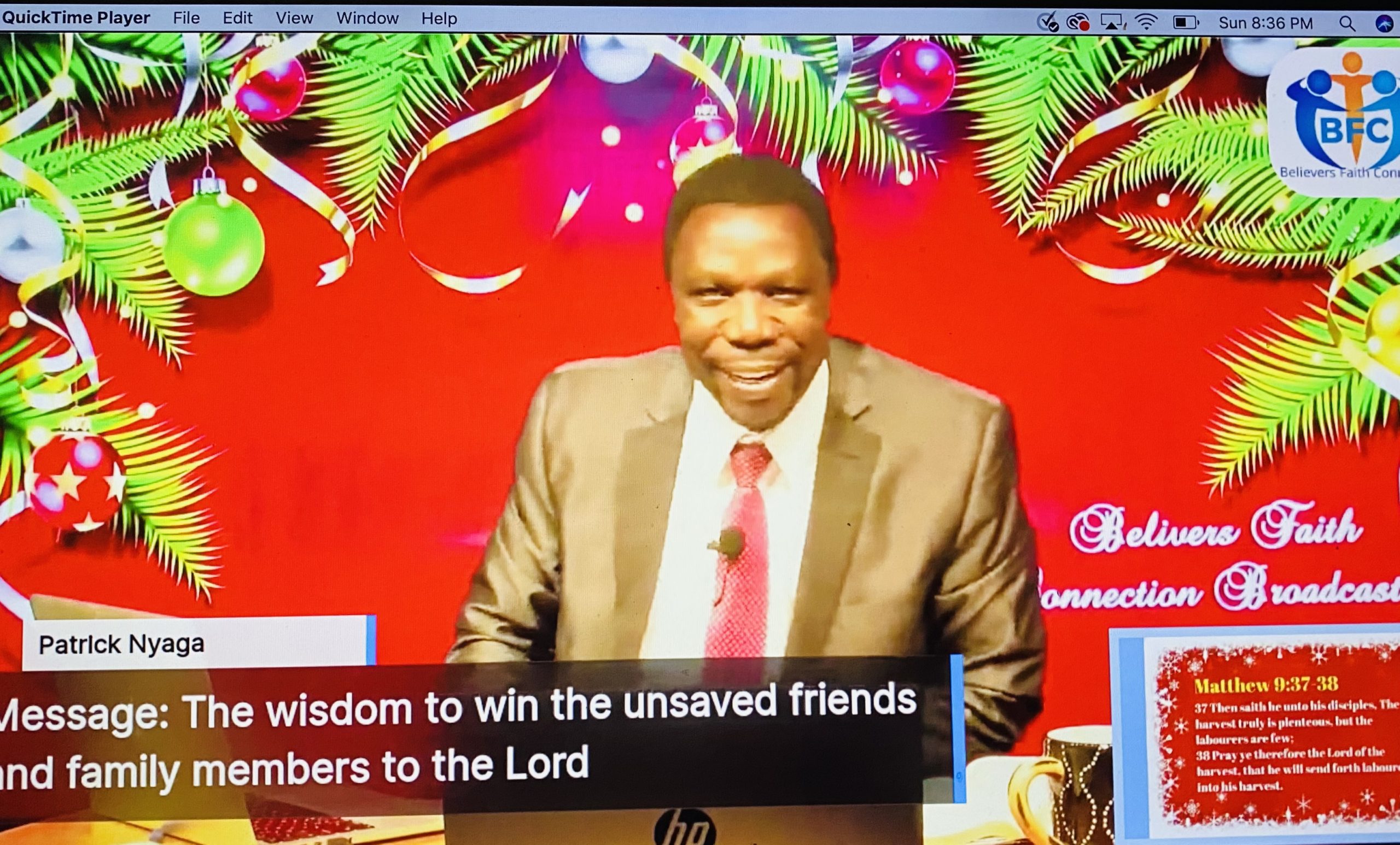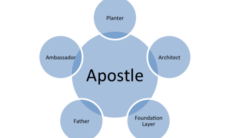Apostle Paul is the writer of the epistle we know as 1 Thessalonians to the church of Thessalonica. He sent it shortly after he had established the congregation there. In the letter, Apostle Paul reminded Thessalonians of the importance of prayer to keep their faith strong by praying without ceasing. He also warned the church of Thessalonica to be prepared for the second coming of Jesus by keeping their hearts pure and holy for His return. It is in this context that we find Paul’s assertion to “pray without ceasing.”
In the fifth chapter of this same Epistle to the Thessalonians, Paul urged the church to cling to the Gospel they had received and to hold onto what was good and righteous. They were to continue living holy lives and prayer was essential to that instruction. Apostle Paul reminded them of the importance of prayer to keep their faith strong and to stay connected to God’s truth so that they would not be deceived by false messages.
The Greek word translated to “without ceasing” is αδιαλειπτως (adialeíptōs). It literally means, “constantly or without intermission”.
In most Bible translations, this word is interpreted as “without ceasing,” but other versions also translate to continually (NIV) or all the time (The Message). Interestingly enough, whichever version of the Bible you read, the meaning remains the same and consistent with the Greek word αδιαλειπτως (adialeíptōs). The various translations of the Bible help emphasize the same message, which is to pray often and diligently.
Can we really pray without ever stopping?
It would be impossible to actually pray without ever stopping. We have thoughts, we read, we sleep, we eat, we converse with others, we work, and have a whole host of responsibilities to tend to throughout the day that would disrupt our attempts at constantly praying. There are plenty of tasks and roles we need to participate in that would naturally hinder our ability to pray without ever stopping.
When we take into account the context of what Paul wrote, we recognize that Paul wasn’t instructing believers to give up their responsibilities and only pray. Rather, this passage teaches us that we need to commit ourselves to prayer and make it a top priority in our lives. By doing so, we will remain holy and pure, having hearts ready for when Jesus returns.
Main Reasons Why We Need To Pray
- Prayer is the way we talk to God, hear from God, and keep our minds on Him.
- Prayer is the channel in which we can let go of fears and concerns, and how we lift up our praises and thanks to God.
- Prayer is vital to our spiritual formation and growth. Just as Jesus was often seen taking time away to go pray, we should do the same.
- Paul knew that prayer was key the to guarding our hearts against evil and to keeping ourselves in line with God’s will.
- Prayer is what helps us find our way through difficult times, tough decisions, or expressing our hopes and joy.
- Prayer draws us closer to God and helps us practice our faith.
1 Thessalonians 5:17 serves as a serious reminder to all believers how significant prayer is to our faith.
As Christians, it is important to pray to God and to carve out time throughout the day to speak to Him and worship Him. Prayer has been a spiritual practice since the beginning of time and the point Paul made was that prayer is still something that all Christians need to integrate into their lives.
In the Bible, there are many kinds of prayers demonstrated. In your own life, you may also be accustomed to saying a variety of prayers. The verses and prayers that we read throughout the Scriptures can become the prayers we use in our time of fellowship / prayer to God.
The 7 major types of prayers in the Bible
1) The Lord’s Prayer (The Model Prayer Taught By Jesus)
“This, then, is how you should pray: ‘Our Father in heaven, hallowed be your name, your kingdom come, your will be done, on earth as it is in heaven. Give us today our daily bread. And forgive us our debts, as we also have forgiven our debtors. And lead us not into temptation, but deliver us from the evil one’” (Matthew 6:9-13).
2) Thanksgiving (Gratitude), Worship (Reverent Devotion), or Praise (Expressed Admiration)
“I will give thanks to you, Lord, with all my heart; I will tell of all your wonderful deeds” (Psalm 9:1).
“There is no one holy like the Lord; there is no one besides you; there is no Rock like our God” (1 Samuel 2:2).
“My soul magnifies the Lord, and my spirit rejoices in God my Savior, for he has looked on the humble estate of his servant” (Luke 1:46-48).
3) Prayers Seeking Forgiveness
“Be merciful to me, O God, because of your constant love. Because of your great mercy wipe away my sins! Wash away all my evil and make me clean from my sin!” (Psalm 51:1).
“If we confess our sins, he is faithful and just and will forgive us our sins and purify us from all unrighteousness” (1 John 1:9).
4) Prayers for Various Needs, Healing, and Guidance
“Hear my voice when I call, Lord; be merciful to me and answer me” (Psalm 27:7).
“Guide my steps by your word, so I will not be overcome by evil” (Psalm 119:133).
“Heal me, O Lord, and I will be healed; save me and I will be saved, for you are the one I praise” (Jeremiah 17:14).
“So I say to you: Ask and it will be given to you; seek and you will find; knock and the door will be opened to you” (Luke 11:9).
“Do not be anxious about anything, but in every situation, by prayer and petition, with thanksgiving, present your requests to God” (Philippians 4:6).
5) Prayers of Intercession (Praying for Others, for Healing, or Deliverance)
“Again I say to you, that if two of you agree on earth about anything that they may ask, it shall be done for them by My Father who is in heaven. For where two or three have gathered together in My name, I am there in their midst” (Matthew 18:19-20).
“Then some children were brought to Him so that He might lay His hands on them and pray” (Matthew 19:13).
“Is anyone among you sick? Let them call the elders of the church to pray over them and anoint them with oil in the name of the Lord. And the prayer offered in faith will make the sick person well; the Lord will raise them up. If they have sinned, they will be forgiven” (James 5:14-15).
6) Individual Prayers (Praying to God and Spending Time with Him One-on-One)
“When you pray, go away by yourself, shut the door behind you, and pray to your Father in private. Then your Father, who sees everything, will reward you” (Matthew 6:6).
“It was at this time that Jesus went off to the mountain to pray, and He spent the whole night in prayer to God” (Luke 6:12).
7) Communal Prayers (Praying with Other Believers)
“They all met together and were constantly united in prayer, along with Mary the mother of Jesus, several other women, and the brothers of Jesus” (Acts 1:14).
“Therefore confess your sins to each other and pray for each other so that you may be healed. The prayer of a righteous person is powerful and effective” (James 5:16).
Why should we pray if God knows everything? Click here to check out this article…
Visit us on Facebook – Please “Like and Follow”
Click the links below to see our latest posts..
Download Audio
Download PDF









